- Home
- Elizabeth Gaskell
The life of Charlotte Brontë Page 18
The life of Charlotte Brontë Read online
Page 18
CHAPTER VIII.
On the 29th of July, 1835, Charlotte, now little more than nineteen years old, went as teacher to Miss Wooler’s. Emily accompanied her, as a pupil; but she became literally ill from home-sickness, and could not settle to anything, and after passing only three months at Roe Head, returned to the parsonage and the beloved moors.
Miss Brontë gives the following reasons as those which prevented Emily’s remaining at school, and caused the substitution of her younger sister in her place at Miss Wooler’s:—1
“My sister Emily loved the moors. Flowers brighter than the rose bloomed in the blackest of the heath for her;—out of a sullen hollow in a livid hill-side, her mind could make an Eden. She found in the bleak solitude many and dear delights; and not the least and best-loved was—liberty. Liberty was the breath of Emily’s nostrils; without it she perished. The change from her own home to a school, and from her own very noiseless, very secluded, but unrestricted and unartificial mode of life, to one of disciplined routine (though under the kindest auspices), was what she failed in enduring. Her nature proved here too strong for her fortitude. Every morning, when she woke, the vision of home and the moors rushed on her, and darkened and saddened the day that lay before her. Nobody knew what ailed her but me. I knew only too well. In this struggle her health was quickly broken: her white face, attenuated form, and failing strength, threatened rapid decline. I felt in my heart she would die, if she did not go home, and with this conviction obtained her recall. She had only been three months at school; and it was some years before the experiment of sending her from home was again ventured on.”
This physical suffering on Emily’s part when absent from Haworth, after recurring several times under similar circumstances, became at length so much an acknowledged fact, that whichever was obliged to leave home, the sisters decided that Emily must remain there, where alone she could enjoy anything like good health. She left it twice again in her life; once going as teacher to a school in Halifax for six months, and afterwards accompanying Charlotte to Brussels for ten. When at home, she took the principal part of the cooking upon herself, and did all the household ironing; and after Tabby grew old and infirm, it was Emily who made all the bread for the family; and any one passing by the kitchen-door, might have seen her studying German out of an open book, propped up before her, as she kneaded the dough; but no study, however interesting, interfered with the goodness of the bread, which was always light and excellent. Books were, indeed, a very common sight in that kitchen; the girls were taught by their father theoretically, and by their aunt practically, that to take an active part in all household work was, in their position, woman’s simple duty; but, in their careful employment of time, they found many an odd five minutes for reading while watching the cakes, and managed the union of two kinds of employment better than King Alfred.
Charlotte’s life at Miss Wooler’s was a very happy one, until her health failed. She sincerely loved and respected the former schoolmistress, to whom she was now become both companion and friend. The girls were hardly strangers to her, some of them being younger sisters of those who had been her own playmates. Though the duties of the day might be tedious and monotonous,2 there were always two or three happy hours to look forward to in the evening, when she and Miss Wooler sat together—sometimes late into the night—and had quiet pleasant conversations, or pauses of silence as agreeable, because each felt that as soon as a thought or remark occurred which they wished to express, there was an intelligent companion ready to sympathise, and yet they were not compelled to “make talk.”
It was about this time that an event happened in the neighbourhood of Leeds, which excited a good deal of interest.3 A young lady, who held the situation of governess in a very respectable family, had been wooed and married by a gentleman, holding some subordinate position in the commercial firm to which the young lady’s employer belonged. A year after her marriage, during which time she had given birth to a child, it was discovered that he whom she called husband had another wife. Report now says, that this first wife was deranged, and that he had made this an excuse to himself for his subsequent marriage. But, at any rate, the condition of the wife who was no wife—of the innocent mother of the illegitimate child—excited the deepest commiseration; and the case was spoken of far and wide, and at Roe Head among other places.
Miss Wooler was always anxious to afford Miss Brontë every opportunity of recreation in her power; but the difficulty often was to persuade her to avail herself of the invitations which came, urging her to spend Saturday and Sunday with E. and Mary, in their respective homes, that lay within the distance of a walk. But Miss Brontë was too apt to consider, that allowing herself a holiday was a dereliction of duty, and to refuse herself the necessary change from something of an over-ascetic spirit, betokening a loss of healthy balance in either body or mind. Indeed, it is clear that such was the case, from an extract referring to this time, taken out of the letter I have before referred to, from “Mary.”
“Three years after”—(the period when they were at school together)—“I heard that she had gone as teacher to Miss Wooler’s. I went to see her, and asked how she could give so much for so little money, when she could live without it. She owned that, after clothing herself and Anne, there was nothing left, though she had hoped to be able to save something. She confessed it was not brilliant, but what could she do? I had nothing to answer. She seemed to have no interest or pleasure beyond the feeling of duty, and, when she could get, used to sit alone, and ‘make out.’ She told me afterwards, that one evening she had sat in the dressing-room until it was quite dark, and then observing it all at once, had taken sudden fright.” No doubt she remembered this well when she described a similar terror getting hold upon Jane Eyre. She says in the story, “I sat looking at the white bed and overshadowed walls—occasionally turning a fascinated eye towards the gleaming mirror—I began to recall what I had heard of dead men troubled in their graves....... I endeavored to be firm; shaking my hair from my eyes, I lifted my head and tried to look boldly through the dark room; at this moment, a ray from the moon penetrated some aperture in the blind. No! moonlight was still, and this stirred ..... prepared as my mind was for horror, shaken as my nerves were by agitation, I thought the swift-darting beam was a herald of some coming vision from another world. My heart beat thick, my head grew hot; a sound filled my ears which I deemed the rustling of wings; something seemed near me.”h
“From that time,” Mary adds, “her imaginations became gloomy or frightful; she could not help it, nor help thinking. She could not forget the gloom, could not sleep at night, nor attend in the day”
Of course the state of health thus described came on gradually, and is not to be taken as a picture of her condition in 1836. Yet even then there is a despondency in some of her expressions, that too sadly reminds one of some of Cowper’s letters. And it is remarkable how deeply his poems impressed her. His words, his verses, came more frequently to her memory, I imagine, than those of any other poet.4
“May 10th, 1836.
“I was struck with the note you sent me with the umbrella; it showed a degree of interest in my concerns which I have no right to expect from any earthly creature. I won’t play the hypocrite; I won’t answer your kind, gentle, friendly questions in the way you wish me to. Don’t deceive yourself by imagining I have a bit of real goodness about me. My darling, if I were like you, I should have my face Zion-ward, though prejudice and error might occasionally fling a mist over the glorious vision before me—but I am not like you. If you knew my thoughts, the dreams that absorb me, and the fiery imagination that at times eats me up, and makes me feel society, as it is, wretchedly insipid, you would pity and I dare say despise me. But I know the treasures of the Bible; I love and adore them. I can see the Well of Life in all its clearness and brightness; but when I stoop down to drink of the pure waters they fly from my lips as if I were Tantalus.5
“You are far too kind and frequent in your invitati
ons. You puzzle me. I hardly know how to refuse, and it is still more embarrassing to accept. At any rate, I cannot come this week, for we are in the very thickest melée of the Repetitions. I was hearing the terrible fifth section when your note arrived. But Miss Wooler says I must go to Mary next Friday, as she promised for me on Whit-Sunday; and on Sunday morning I will join you at church, if it be convenient, and stay till Monday. There’s a free and easy proposal! Miss Wooler has driven me to it. She says her character is implicated.”
Good, kind Miss Wooler! however monotonous and trying were the duties Charlotte had to perform under her roof, there was always a genial and thoughtful friend watching over her, and urging her to partake of any little piece of innocent recreation that might come in her way. And in those Midsummer holidays of 1836, her friend E. came to stay with her at Haworth, so there was one happy time secured.
Here follows a series of letters, not dated, but belonging to the latter portion of this year; and again we think of the gentle and melancholy Cowper.
“MY dear dear E.,
I am at this moment trembling all over with excitement, after reading your note; it is what I never received before—it is the unrestrained pouring out of a warm, gentle, generous heart..... I thank you with energy for this kindness. I will no longer shrink from answering your questions. I do wish to be better than I am. I pray fervently sometimes to be made so. I have stings of conscience, visitings of remorse, glimpses of holy, of inexpressible things, which formerly I used to be a stranger to; it may all die away, and I may be in utter midnight, but I implore a merciful Redeemer, that, if this be the dawn of the gospel, it may still brighten to perfect day. Do not mistake me—do not think I am good; I only wish to be so. I only hate my former flippancy and forwardness. Oh! I am no better than ever I was. I am in that state of horrid, gloomy uncertainty that, at this moment, I would submit to be old, grey-haired, to have passed all my youthful days of enjoyment, and to be settling on the verge of the grave, if I could only thereby ensure the prospect of reconciliation to God, and redemption through his Son’s merits. I never was exactly careless of these matters, but I have always taken a clouded and repulsive view of them; and now, if possible, the clouds are gathering darker, and a more oppressive despondency weighs on my spirits. You have cheered me, my darling; for one moment, for an atom of time, I thought I might call you my own sister in the spirit; but the excitement is past, and I am now as wretched and hopeless as ever. This very night I will pray as you wish me. May the Almighty hear me compassionately! and I humbly hope he will, for you will strengthen my polluted petitions with your own pure requests. All is bustle and confusion round me, the ladies pressing with their sums and their lessons..... If you love me, do, do, do come on Friday: I shall watch and wait for you, and if you disappoint me I shall weep. I wish you could know the thrill of delight which I experienced, when, as I stood at the dining-room window, I saw—, as he whirled past, toss your little packet over the wall.”
Huddersfield market-day was still the great period for events at Roe Head. Then girls, running round the corner of the house and peeping between tree-stems, and up a shadowy lane, could catch a glimpse of a father or brother driving to market in his gig; might, perhaps, exchange a wave of the hand; or see, as Charlotte Brontë did from the window forbidden to pupils, a white packet tossed over the wall, by some swift strong motion of an arm, the rest of the traveller’s body unseen.
“Weary with a day’s hard work..... I am sitting down to write a few lines to my dear E. Excuse me if I say nothing but nonsense, for my mind is exhausted and dispirited. It is a stormy evening, and the wind is uttering a continual moaning sound, that makes me feel very melancholy. At such times—in such moods as these—it is my nature to seek repose in some calm tranquil idea, and I have now summoned up your image to give me rest. There you sit, upright and still, in your black dress, and white scarf, and pale marble-like face—just like reality. I wish you would speak to me. If we should be separated—if it should be our lot to live at a great distance, and never to see each other again—in old age, how I should conjure up the memory of my youthful days, and what a melancholy pleasure I should feel in dwelling on the recollection of my early friend!.... I have some qualities that make me very miserable, some feelings that you can have no participation in—that few, very few, people in the world can at all understand. I don’t pride myself on these peculiarities. I strive to conceal and suppress them as much as I can; but they burst out sometimes, and then those who see the explosion despise me, and I hate myself for days afterwards.... I have just received your epistle and what accompanied it. I can’t tell what should induce you and your sisters to waste your kindness on such a one as me. I’m obliged to them, and I hope you’ll tell them so. I’m obliged to you also, more for your note than for your present. The first gave me pleasure, the last something like pain.”
The nervous disturbance, which is stated to have troubled her while she was at Miss Wooler’s, seems to have begun to distress her about this time; at least, she herself speaks of her irritable condition, which was certainly only a temporary ailment.
“You have been very kind to me of late, and have spared me all those little sallies of ridicule, which, owing to my miserable and wretched touchiness of character, used formerly to make me wince, as if I had been touched with a hot iron; things that nobody else cares for, enter into my mind and rankle there like venom. I know these feelings are absurd, and therefore I try to hide them, but they only sting the deeper for concealment.”
Compare this state of mind with the gentle resignation with which she submitted to be put aside as useless, or told of her ugliness by her schoolfellows, only three years before.
“My life since I saw you has passed as monotonously and unbroken as ever; nothing but teach, teach, teach, from morning till night. The greatest variety I ever have is afforded by a letter from you, or by meeting with a pleasant new book. The ‘Life of Oberlin,’ and ‘Legh Richmond’s Domestic Portraiture,’ are the last of this description. The latter work strongly attracted and strangely fascinated my attention. Beg, borrow, or steal it without delay; and read the ‘Memoir of Wilberforce,’ —that short record of a brief uneventful life; I shall never forget it; it is beautiful, not on account of the language in which it is written, not on account of the incidents which it details, but because of the simple narrative it gives of a young talented, sincere Christian.”
About this time Miss Wooler removed her school from the fine, open, breezy situation of Roe Head, to Dewsbury Moor, only two or three miles distant. Her new residence was a much lower site, and the air much less pure and exhilarating to one bred at the wild hill-village of Haworth. Charlotte felt the change extremely, and regretted it not merely on her own account, but for the sake of her sister Anne. Moreover, Emily had gone as teacher to a school at Halifax, where there were nearly forty pupils.
“I have had one letter from her since her departure,” writes Charlotte, on October 2nd, 1836: “It gives an appalling account of her duties; hard labour from six in the morning to eleven at night, with only one half-hour of exercise between. This is slavery. I fear she can never stand it.”
When the sisters met at home in the Christmas holidays, they talked over their lives, and the prospect which they afforded of occupation and remuneration. They felt that it was a duty to relieve their father of the burden of their support, if not entirely, or that of all three, at least that of one or two; and, naturally, the lot devolved upon the elder ones to find some remunerative occupation. They knew that they were never likely to inherit much money. Mr. Brontë had but a small stipend, and was both charitable and liberal. Their aunt had an annuity of 501., but it reverted to others at her death, and her nieces had no right, and were the last persons in the world, to reckon upon her savings. What could they do? Charlotte and Emily were trying teaching, and as it seemed without much success. The former, it is true, had the happiness of having a friend for her employer, and being surrounded by those who kne
w her and loved her; but her salary was too small for her to save out of it; and her education did not entitle her to a larger. The sedentary and monotonous nature of her life, too, was preying upon her health and spirits, although, with necessity “as her mistress,” she might hardly like to acknowledge this even to herself. But Emily—that free, wild untameable spirit, never happy nor well but on the sweeping moors that gathered round her home—that hater of strangers, doomed to live amongst them, and not merely to live but to slave in their service—what Charlotte could have borne patiently for herself, she could not bear for her sister. And yet what to do? She had once hoped that she herself might become an artist, and so earn her livelihood; but her eyes had failed her in the minute and useless labour which she had imposed upon herself with a view to this end.
It was the household custom among these girls to sew till nine o’clock at night. At that hour, Miss Branwell generally went to bed, and her nieces’ duties for the day were accounted done. They put away their work, and began to pace the room backwards and forwards, up and down,—as often with the candles extinguished, for economy’s sake, as not,—their figures glancing into the fire-light, and out into the shadow, perpetually. At this time, they talked over past cares, and troubles; they planned for the future, and consulted each other as to their plans. In after years, this was the time for discussing together the plots of their novels. And again still later this was the time for the last surviving sister to walk alone, from old accustomed habit, round and round the desolate room, thinking sadly upon the “days that were no more.” But this Christmas of 1836 was not without its hopes and daring aspirations. They had tried their hands at story-writing, in their miniature magazine, long ago; they all of them “made out” perpetually. They had likewise attempted to write poetry; and had a modest confidence that they had achieved a tolerable success. But they knew that they might deceive themselves, and that sisters’ judgments of each other’s productions were likely to be too partial to be depended upon. So Charlotte as the eldest resolved to write to Southey. I believe (from an expression in a letter to be noticed hereafter), that she also consulted Coleridge;6 but I have not met with any part of that correspondence.

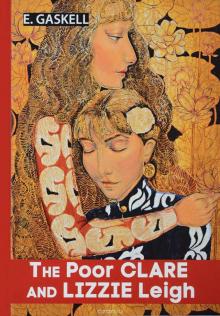 Lizzie Leigh
Lizzie Leigh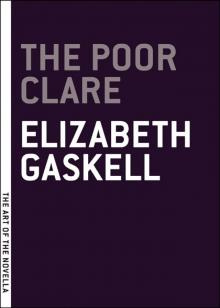 The Poor Clare
The Poor Clare Lois the Witch
Lois the Witch North and South
North and South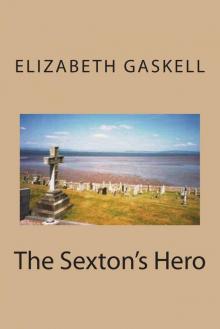 Sexton's Hero
Sexton's Hero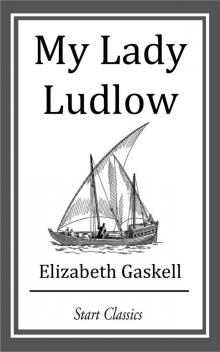 My Lady Ludlow
My Lady Ludlow Uncle Peter
Uncle Peter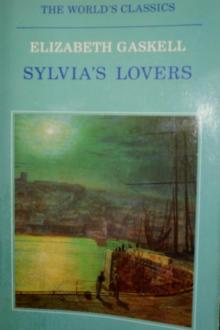 Sylvia's Lovers Elizabeth Cleghorn Gaskell
Sylvia's Lovers Elizabeth Cleghorn Gaskell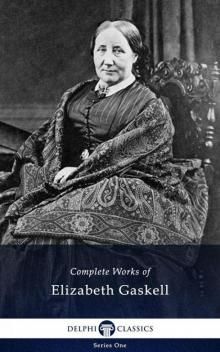 Delphi Complete Works of Elizabeth Gaskell
Delphi Complete Works of Elizabeth Gaskell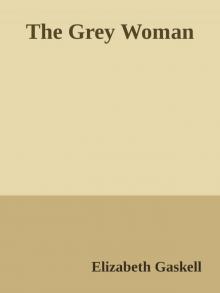 The Grey Woman
The Grey Woman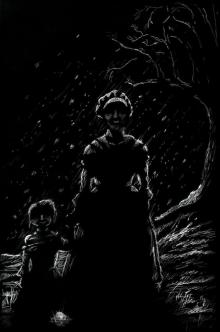 The Old Nurse's Story and Other Tales
The Old Nurse's Story and Other Tales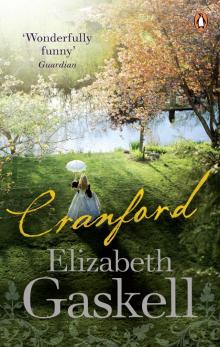 Cranford
Cranford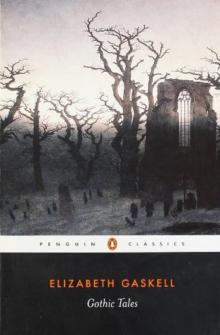 Gothic Tales
Gothic Tales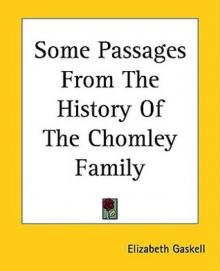 Some Passages From the History of the Chomley Family
Some Passages From the History of the Chomley Family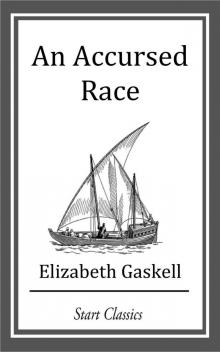 An Accursed Race
An Accursed Race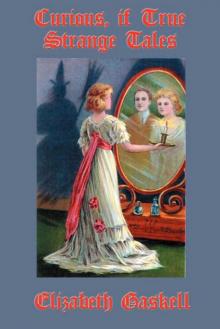 Curious, if True: Strange Tales Elizabeth Cleghorn Gaskell
Curious, if True: Strange Tales Elizabeth Cleghorn Gaskell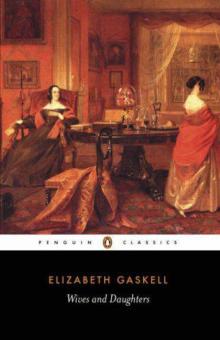 Wives and Daughters
Wives and Daughters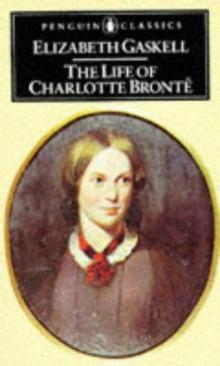 The life of Charlotte Brontë
The life of Charlotte Brontë